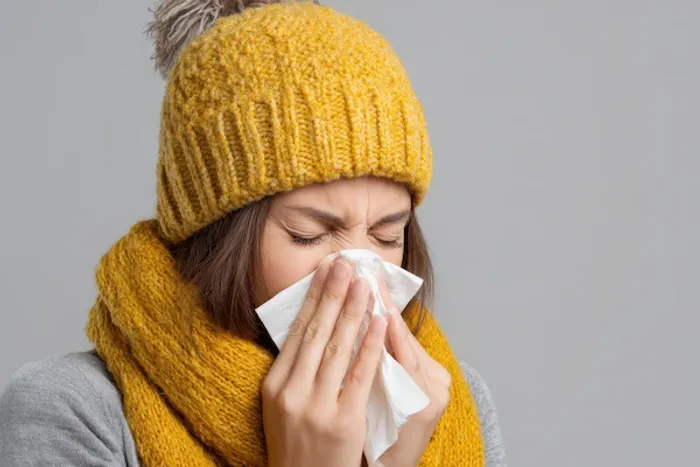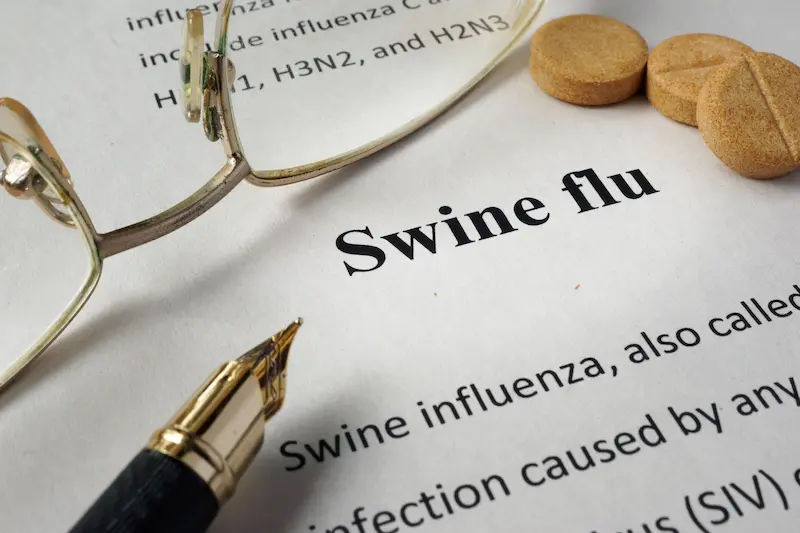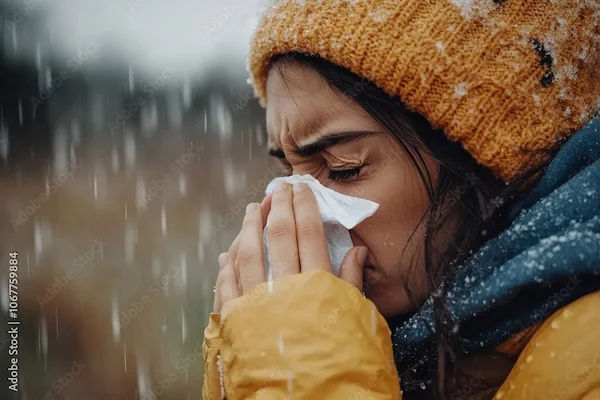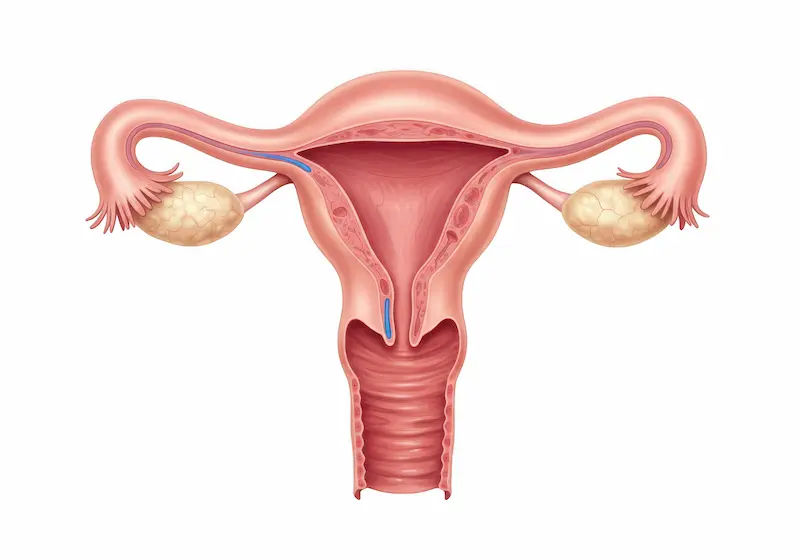Monsoon Wellness: Your Ultimate Guide to Illness Prevention This Season
Know about monsoon wellness, why monsoon causes illness, common diseases, a multi-layered prevention strategy and more.

Written by Dr. Mohammed Kamran
Reviewed by Dr. Rohinipriyanka Pondugula MBBS
Last updated on 13th Jan, 2026

Introduction
The pitter-patter of rain on your roof, the petrichor rising from the earth—the monsoon season is a sensory delight that offers respite from the scorching summer heat. However, this beautiful season also brings with it a host of health challenges. The increased humidity and stagnant water create a perfect breeding ground for mosquitoes and pathogens, leading to a spike in various monsoon illnesses. But fear not! Getting sick is not an inevitable part of the season. With the right knowledge and proactive measures, you can fully enjoy the rains while staying perfectly healthy. This comprehensive guide will walk you through the common signs of monsoon illness and equip you with a robust prevention strategy to safeguard yourself and your family. Let’s dive into how you can build your defense against seasonal ailments.
Why the Monsoon is a Hotbed for Illness
The monsoon's charm is intertwined with environmental conditions that facilitate the spread of infectious diseases. Understanding these factors is the first step toward effective prevention.
Stagnant Water: The Breeding Ground for Mosquito-Borne Diseases
After the first few showers, water accumulates in unexpected places: discarded tyres, empty pots, clogged drains, and even potholes. This stagnant water becomes the ideal nursery for mosquitoes, particularly the Aedes aegypti (which carries dengue and chikungunya) and the Anopheles mosquito (which carries malaria). A study by the National Centre for Biotechnology Information (NCBI) highlights that mosquito breeding sites increase exponentially during the monsoon, leading to a direct correlation with disease outbreaks.
Consult a Top General Practitioner for Personalised Advice
Humidity and Contamination: The Rise of Water and Food-Borne Infections
High humidity levels during the monsoon spoil food faster, promoting the growth of fungi and bacteria. Simultaneously, rainwater run-off can contaminate public water sources with sewage and waste, leading to the spread of bacteria like Salmonella Typhi (Typhoid) and viruses like Hepatitis A. This is why the incidence of waterborne diseases and food poisoning sees a sharp rise.
Weakened Immunity: The Seasonal Shift's Impact on Your Health
The sudden drop in temperature and fluctuating atmospheric pressure can stress the body, potentially weakening our immune response. This makes us more susceptible to common airborne infections like the flu and cold, which also tend to spread more easily as people congregate indoors.
Know Your Enemy: Common Monsoon Diseases and Their Tell-Tale Signs
Early recognition of symptoms is crucial for timely treatment. Here’s what to watch out for.
Mosquito-Borne Threats: Malaria, Dengue, and Chikungunya
- Identifying Malaria: Caused by a parasite, symptoms usually appear 10-15 days after a mosquito bite. Look for high fever with chills and rigours (uncontrollable shivering), profuse sweating, headache, and nausea. The fever often occurs in cyclical patterns of 48-72 hours.
- Dengue Fever: Also known as "break-bone fever," dengue typically causes a sudden high fever (104°F), severe headache, pain behind the eyes, severe muscle and joint pain, and a characteristic skin rash that appears a few days after the fever. Watch for warning signs like severe abdominal pain, persistent vomiting, or bleeding gums, which require immediate medical attention.
- Chikungunya: Similar to dengue, it causes high fever and debilitating joint pain (arthralgia), often affecting the hands and feet. The joint pain can be severe and persist for weeks or even months, distinguishing it from other illnesses.
Water and Food-Borne Illnesses: Typhoid, Hepatitis A, and Gastroenteritis
- The Steady Onset of Typhoid Fever: Caused by contaminated food or water, typhoid symptoms include a sustained high fever that increases gradually, weakness, stomach pain, headache, and loss of appetite. Some may develop rose-colored spots on the chest.
- Hepatitis A: This virus affects the liver. Symptoms include fatigue, sudden nausea and vomiting, abdominal pain (especially on the right side under the ribs), clay-colored stool, dark urine, and jaundice (yellowing of the skin and eyes).
- Viral Gastroenteritis: Commonly called the "stomach flu," it leads to watery diarrhoea, stomach cramps, nausea or vomiting, and sometimes a fever. The primary risk is dehydration due to fluid loss.
Your Proactive Shield: A Multi-Layered Prevention Strategy
Prevention is always better than a cure. A multi-pronged approach is most effective.
Fortifying Your Home: Mosquito Proofing and Sanitation
The cornerstone of preventing mosquito-borne diseases is eliminating breeding grounds. Conduct a weekly "dry day" to empty and scrub all containers that hold water. Use window and door screens, and sleep under mosquito nets. Use EPA-approved mosquito repellents containing DEET, Picaridin, or Oil of Lemon Eucalyptus on exposed skin.
Dietary Defense: Eating Smart and Staying Hydrated
Avoid street food, especially cut fruits and salads that may have been washed in contaminated water. Eat freshly cooked, warm meals. Wash vegetables and fruits thoroughly. Stay hydrated, but ensure you drink boiled, filtered, or chemically purified water. Herbal teas with ginger and tulsi (holy basil) can be soothing and boost immunity.
Personal Protection: Clothing, Repellents, and Hygiene
Wear long-sleeved shirts, long pants, socks, and shoes when outdoors. Apply repellent on clothing for added protection. Practice meticulous hygiene: wash your hands frequently with soap and water, especially before eating and after coming home from outside. Carry a hand sanitiser for times when soap isn't available.
Building Internal Resilience: Boosting Your Immunity Naturally
Support your body's natural defense system. Incorporate immunity-boosting foods rich in Vitamin C (amla, citrus fruits), Vitamin D, zinc, and antioxidants. A simple concoction of ginger, tulsi, turmeric, and honey in warm water can work wonders. Ensure you get adequate sleep and manage stress through light exercise or meditation, as both are critical for a robust immune response.
First-Aid and When to Seek Professional Help
For fevers, maintain hydration and use paracetamol for relief. Avoid self-medicating with aspirin or ibuprofen, especially if dengue is suspected, as it can increase the risk of bleeding. Most viral fevers resolve with rest and fluids.
However, it is crucial to consult a doctor if:
- A high fever (over 102°F) persists for more than 48 hours.
- You experience severe headache, vomiting, or abdominal pain.
- You notice signs of dehydration (dizziness, little to no urination).
- You develop a rash or bleeding from any site.
- Symptoms worsen or do not improve after 3-4 days.
If you or a family member experiences any severe symptoms like these, it is vital to consult a doctor online with Apollo24|7 for a prompt evaluation and to rule out serious conditions. For necessary diagnostic tests, Apollo24|7 offers convenient home collection services, allowing you to rest and recover without stepping out.
Conclusion
The monsoon season is a time to be enjoyed, not endured with illness. By understanding the signs of common monsoon diseases and implementing a strong, multi-faceted prevention plan, you can significantly reduce your risk of falling sick. It boils down to being vigilant about your environment, making smart dietary choices, and practising impeccable hygiene. Remember, your health is in your hands. Listen to your body, don't ignore persistent symptoms, and seek professional medical advice when needed. Stay informed, stay prepared, and make the most of this beautiful season in the best of health.
Consult a Top General Practitioner for Personalised Advice
Consult a Top General Practitioner for Personalised Advice

Dr Suseela
General Physician
5 Years • MBBS
Bengaluru
Apollo Medical Center, Marathahalli, Bengaluru

Dr. Anand Ravi
General Physician
2 Years • MBBS
Bengaluru
PRESTIGE SHANTHINIKETAN - SOCIETY CLINIC, Bengaluru

Dr. Vivek D
General Physician
4 Years • MBBS
Bengaluru
PRESTIGE SHANTHINIKETAN - SOCIETY CLINIC, Bengaluru

Dr Syed Mateen Pasha
General Physician
2 Years • MBBS
Bengaluru
PRESTIGE SHANTHINIKETAN - SOCIETY CLINIC, Bengaluru

Dr. Gunashree V L
General Physician/ Internal Medicine Specialist
3 Years • MBBS
Bengaluru
Apollo Clinic, JP nagar, Bengaluru
Consult a Top General Practitioner for Personalised Advice

Dr Suseela
General Physician
5 Years • MBBS
Bengaluru
Apollo Medical Center, Marathahalli, Bengaluru

Dr. Anand Ravi
General Physician
2 Years • MBBS
Bengaluru
PRESTIGE SHANTHINIKETAN - SOCIETY CLINIC, Bengaluru

Dr. Vivek D
General Physician
4 Years • MBBS
Bengaluru
PRESTIGE SHANTHINIKETAN - SOCIETY CLINIC, Bengaluru

Dr Syed Mateen Pasha
General Physician
2 Years • MBBS
Bengaluru
PRESTIGE SHANTHINIKETAN - SOCIETY CLINIC, Bengaluru

Dr. Gunashree V L
General Physician/ Internal Medicine Specialist
3 Years • MBBS
Bengaluru
Apollo Clinic, JP nagar, Bengaluru
More articles from General Medical Consultation
Frequently Asked Questions
What is the most effective way to prevent dengue fever at home?
The most effective method is source reduction—eliminating all stagnant water where Aedes mosquitoes breed. This includes emptying flowerpot plates, covering water tanks, and discarding unused containers. Combine this with using mosquito nets and repellents.
Can I get sick from walking in rainwater?
Yes, walking through flooded streets can expose you to leptospirosis, a bacterial infection present in water contaminated with animal urine. It's best to avoid wading through floods. If unavoidable, wear waterproof boots and wash your feet and legs thoroughly with soap and disinfectant immediately after.
What are the best immunity-boosting foods for the monsoon?
Incorporate foods rich in Vitamin C (amla, oranges, bell peppers), antioxidants (turmeric, ginger, garlic), and zinc (nuts, seeds, legumes). Herbal teas with tulsi (holy basil) and ginger are excellent for strengthening your respiratory and immune systems.
How long after a mosquito bite do dengue symptoms appear?
Dengue symptoms typically develop 4-10 days after being bitten by an infected mosquito. The onset is usually sudden with a high fever.
Is it necessary to see a doctor for a common cold during the monsoon?
A common cold often resolves on its own with rest and hydration. However, if your condition does not improve after trying these methods, or if you develop a high fever, difficulty breathing, or severe sinus pain, it is advisable to book a physical visit to a doctor with Apollo24|7 to rule out secondary infections like sinusitis or flu.




